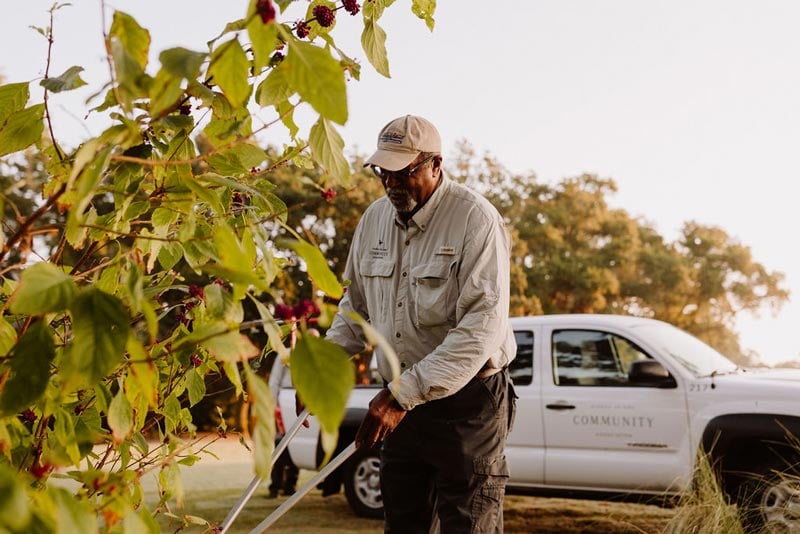Mar
26
2024

From The Blog
KICA Lakes Team Proactively Addresses Mosquitos Throughout Their Life Cycle
Mosquitoes may be our least favorite foundational species, but they are very common on our island. While they serve as both vital food sources and major pollinators, when we think of them, it’s usually only to remember to get the bug spray before heading out. Fortunately, KICA’s staff biologists consistently consider a balanced approach when customizing the island’s mosquito abatement strategy.
KICA’s Lakes Management team is made up of biologists who tailor their approach to mosquito abatement to suit the island’s conditions. Lakes supervisor and biologist Matt Hill is licensed as a commercial pesticide applicator through the Clemson Department of Pesticide Regulation and is also a member of the South Carolina Mosquito Control Association. Matt points out that “pest management is always a delicate balance between human comfort and environmental responsibility.”
An Annual Cycle of Abatement
The comprehensive mosquito abatement strategy starts each year with larvicide. The team applies long-term, 150-day larvicide tablets in the island’s storm drains twice per year (in March and August). Water is a big factor in mosquito development, so they also treat wet areas after heavy rains using a short-term 30-day tablet. Because four of the mosquito’s five life stages take place in water, this aquatic treatment greatly reduces Kiawah’s mosquito population before it matures.
April through October, the team transitions to adulticide application. They monitor mosquito counts in each of the island’s 30 zones; when counts show that mosquito activity is high, the zone is sprayed from 4-6 a.m. with a mist of adulticide from a truck-mounted sprayer. This sprayer is effective over a 300-foot swath, reaching most of the island’s inhabited areas. The team is diligent about strict adherence to the protocols outlined in the chemical application label. This is not only federal law but it reduces risk. For example, by spraying before sunrise, the team avoids killing other beneficial insects, such as bees, and largely avoids people and pets.
If needed, the team coordinates with Charleston County Mosquito Control to conduct aerial spraying. The county operates both helicopters and airplanes to deliver adulticide and larvicide to a wider area. Charleston County Mosquito Control can also provide additional support with truck-mounted sprayers, if needed.
Mosquito Best Practices
While the team’s strategy greatly reduces the mosquito presence throughout the island, you can reduce the number of mosquitos on your private property by employing these best practices:
- Eliminate standing water on your property as much as possible. Mosquito eggs hatch in standing water – an amount of water as small as a tablespoon can be a breeding ground for mosquitoes.
- Use a propane-based mosquito trap. Mosquitos are drawn to CO2, which is the reason they often hover around your face. Propane-based mosquito traps, which give off a small amount of CO2, do not use pesticides and only attract mosquitoes, eliminating non-target mortality. These traps are widely available on Amazon and in hardware stores.
- Ensure you’re using your personal misting system responsibly. While these systems can play a role in integrated pest management, read tips to reduce any harm to neighbors and the ecosystem here.
KICA’s annual strategy includes a foundation of key preventative measures supplemented by customized treatments when and where they are needed. Because KICA’s team of experts are on the island on a daily basis, they monitor and respond to conditions on an as-needed basis throughout the year. If you have a question or concern, contact KICA’s Lakes Management team at [email protected].

